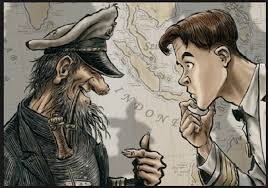This generation doesn't love itself, so it's hard to talk to them about the importance of protecting human lives without valuing their own.
"In our time, humanity doesn't love people, that's why it says no to itself. For human life.”
I quoted the introduction of my thoughts from Cardinal Robert Sarah. Not by chance.
Known comprehensive measurements of the social perception of abortion and desire to have children mostly measure and examine the relationship between subjective well-being and childbearing, the economic and cultural institutional environment, and the impact of abortion regulations. Measuring happiness, mental well-being or health, and self-esteem is a serious challenge for statisticians. But even so, the studies that are available worldwide on this topic can lead to interesting conclusions.
The so-called "happiness index" of individual societies shows very large differences and, in a global context, there is almost no generally applicable law. It does not grow in direct proportion to wealth or education, for example. However, the cultural or religious environment has a noticeable influence.
But there is a better, more accurate indicator than any other option. A community's zest for life and faith in the future is clearly shown in the number of children it has and has an impact on the perception of abortion.
In this regard, we have to come to sad conclusions after seeing the European statistics.
According to the latest measurement of IPSOS in 2023, support for abortion is the highest worldwide in Europe, with the Scandinavian countries leading the way.
In the 24 European countries surveyed, 71 percent of adults believe that abortion should be legal in all or most cases, while 27 percent think it should be illegal. In terms of the perception of abortion, the rates in Hungary do not particularly stand out from the European trend, at most in terms of acceptable reasons.
Thanks to increasingly advanced medical diagnostic tools, today, if we wish, we can also see in four dimensions how a tiny life develops inside the mother's womb. (!) are seen as his last means.
When we know that abortion does not prevent conception, but ends a life that has already been conceived.
In any case, the psychological state of a society is definitely revealed by how much they await or welcome the incoming lives with joy. I see the biggest problem, especially among the younger ones, in the fact that some kind of hopelessness and fear of the future has permeated this generation. This can be attributed to many known reasons.
Events in the world, epidemics, news about armed conflicts, the increasingly unpredictable future, and the rapidly changing environment have a great impact on young people.
Movies, commercials, series, and pop culture have a particularly depressing effect on them, presenting their situation as much scarier and more frustrating than it actually is.
This age group is characterized by various addictions, thanks to the use of digital devices, mediatized culture and relative prosperity. There are many broken families, attachment and emotional damage. And in connection with these and in close interaction, depression and various psychological problems are becoming more common.
We complain a lot about the young generation, that they are not receptive enough, not active enough in the pro life line.
As a result of the conversations with young people, it became clear to me that the reception of the pro-life message and the pro-life perception are in many cases not caused by a lack of information, nor by the often voiced individualistic view of life or selfishness. They are even more idealistic than that.
They became estranged from each other, from themselves, but also from man himself. It is not rare that they are more concerned about the offspring of an endangered animal species; they are more likely to be triggered by a puppy or a kitten than by the fate of a few-week-old human fetus.
At one point in my lectures, I usually ask the question:
Who thinks life has meaning? "They would be shocked at the proportions." Too many teenagers today see that their lives have no meaning, that this phenomenon can be explained by extreme emotions, a period of defiance or turning inward, typical of adolescence.
It's hard to talk to them about the importance of protecting human lives without devaluing their own. This attitude is also present in other age groups and results in the self-liquidating behavior of European communities as a whole.
They see life as hopeless, their own future too dark, the world much worse than it really is. And this disillusionment or hopelessness results in them losing faith in the future. They have no faith that their future children - if they are born - will have a good life, because this is not their own experience of life.
This is what curtails and reduces their future plans and the number of children they plan to have. This is what, in my opinion, significantly influences the attitude of the younger generations towards abortion. They realize far fewer dreams, undertake far fewer things than they could, and that includes children.
During great world fires, our grandparents or great-grandmothers gave birth to 8-9 children. However, the reality surrounding them was dramatic. Life is hopeless. They faced many more difficulties. They lived at a lower standard of living than us, yet they believed that their children would be better, that there was a point in being born into this world. Hope kept them alive! Faith and hope, which were still part of their lives. Contrary to the opinion expressed so often today: "I was not born into this world!"
Scratching the surface, however, buried somewhere in the depths, but there lie the large-scale plans of the growing generation for their lives. As Mária Kopp's research has shown, young Hungarians are inherently pro-life, they want to be married, they want children. Only at an ever younger age and as a result of ever stronger influences do they bury these desires deeper and deeper within themselves. They receive little attention, little love and little encouragement. They live in the online space, without human relationships or hugs.
They became estranged from each other, from themselves, but also from man himself. It is not rare that they are more concerned about the offspring of an endangered animal species; they are more likely to be triggered by a puppy or a kitten than by the fate of a few-week-old human fetus.
But they react incredibly quickly and surprisingly positively to even the smallest impulses. They are indeed touched by the fate of endangered fetuses, because they are sensitive. If we approach them persistently and with great attention, they will open up. They ask a lot of questions that stress them out and wait for answers, but there is no one to turn to, so for lack of a better way, they type them into the Google search engine.
The pro-life message can be conveyed most effectively, the love of life can be handed down to our young people, if we love and encourage them, if we give them hope!
We need to talk about happiness. What is the state in which a person is happy.
And is a young person happier, or a couple, or a family with no children or few children? Would they be happier if there were children in that family? Is a mother happy if she chooses the life of her baby, or is she happier if she rejects this life? And if we examine it from the perspective of happiness, we will see that the preservation of conceived lives brings happiness to our lives, and the child also brings happiness to our lives. Love is not divided by the number of children, but multiplied.
It's been a year since I gave a pro-life lecture to a hundred students of a Greek Catholic school in Hajdúdorog. The teachers told me that hugging had been introduced in the school years earlier. Children – even in higher grades – ask their teachers for hugs surprisingly often. Since then, I have been giving the life-saving message to young people in the form of a hug!
The author is a television journalist, editor-presenter, Carpe Deum
Featured image: Árpád Földházi/Mandiner













